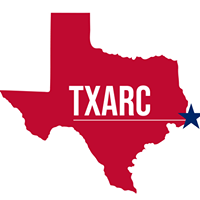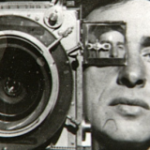From Wilmington, DE newspaper. Sunday, April 26, 1998
Adoption in everyone’s interests: Secrecy and speed in the Uniform Adoption
Act deny children’s legitimate rights
by Mary-Lee Lutz
Opponents of the Uniform Adoption Act, or Delaware House Bill 365, are
being portrayed as a group of whining adoptees who can’t find their birth
mommies. Nothing could be further from the truth. Adult adoptees care
deeply about the children who will be adopted now and in the future. We
accept our responsibility to protect them from the frightening potential
for exploitation inherent in this bill.
But our concerns are also for our own rights. Adult adoptees should have
access to their original, unamended birth certificates in the same manner
as any other citizen.
One of the arguments raised by those oppose opening birth certificates to
an adult adoptee is that doing so violates a birth parent’s right to privacy.
There is a distinction to be made between privacy and secrecy. The sealed
records system has always been based on secrecy. As long as this cloak of
eternal secrecy remains, an aura of shame clings to adoption.
Privacy is another matter. It has never been established that individuals
have a right to conceal their identity from their own children. In
Tennessee, a lawsuit (Doe v. Sundquist) was brought against the state for
allowing adult adoptees access to their birth records. The Sixth Circuit
Court upheld the Tennessee law, affirming that a birth is a shared event.
Its records belong to the one who is born and to the one who gives birth.
In October, 1997, by refusing to review that decision, the United States
Supreme Court concurred.
We also oppose the Uniform Adoption Act because it does nothing to
encourage or to speed up the placement of children currently trapped in the
foster care system. These are the children who most need a stable, loving
home as quickly as possible.
H.B. 365 replaces Chapter 9 of the Delaware Code dealing with adoption, not
Chapter 11, which defines procedures for termination and transfer of
parental rights in court actions on behalf of children who are neglected or
abandoned. This bill was never intended to address these special-needs
adoptions. Its goal is to ease the adoption process only for prospective
adoptive parents of healthy infants.
H.B. 365 permits persons, including corporations, attorneys, health care
providers, and other “commercial entities” to “assist” with adoption
placement. It eliminates the requirement that adoptions be supervised by
licensed agencies staffed by trained, experienced personnel.
The evaluators certified by the state to assess an individual’s suitability
to adopt would be essentially independent contractors whose fees for
service are paid by the prospective adoptive parent. H.B. 365 turns
adoption into a simple commercial transaction.
The bill mandates only two evaluator visits to the prospective adoptive
home. Brief assessments of prospective adoptive parents are inadequate.
Yet these cursory examinations must find the individuals suitable to adopt
if “no specific risk of harm to the physical or psychological well-being of
the minor” can be documented.
The language is chillingly similar to the standard used by the state to
intervene in families suspected of child abuse and neglect. It certainly
does not reflect quality service to children.
True adoption finality results not from quieting the fears of adoptive
parents based on their legal entitlements or favorable court decisions, but
from the fact that the birth parents have made a conscious decision to
relinquish, and that they have had adequate time to consider their decision.
Yet H.B. 365 says that relinquishments are to be accepted from birth
mothers as early as the day the child is born, and that they are, in most
cases, final as soon as they are signed. It indicates that birth parents
must be informed of the availability of counseling about adoption, but it
neither mandates nor provides funding for this counseling.
Agreements for continuing contact or visitation between birth parents and
the child are given no legal protection and are terminated once the
adoption is final. It is hardly in the best interests of children to allow
either adoptive parents or birth parents to dishonor previous agreements
regarding visitation which have been freely entered.
Civil penalties and fines specified for illegal activities relating to
adoption are insufficient to protect the rights of birth parents and adoptees.
The bill does not even prevent an adoption from proceeding if a
specifically prohibited act takes place. This only encourages violations,
and those who can afford to do so may simply regard the $5,000 fine as an
additional cost associated with the adoption.
The Uniform Adoption Act has been condemned by an impressive list of
national organizations including the Child Welfare League, the National
Association of Social Workers, Catholic Charities USA, Adoptive Families of
America, Children Awaiting Parents, and the Joint Council on International
Children’s Services. It has been defeated in every state where it was
introduced over the past two years.
Crafted on flawed premises, it is recognized as a bad law.
* Mary-Lee Lutz, an adoptee from Newark, is the Delaware Representative for
Bastard Nation and a member of Finders Keepers Inc.


 New York Adoptee Rights Coalition
New York Adoptee Rights Coalition











